ANIMAL EMERGENCY
& SPECIALTY CENTER
775-851-3600
6425 S. Virginia St., Reno, NV 89511
OPEN 24/7
Scroll Up

ANIMAL EMERGENCY
& SPECIALTY CENTER
775-851-3600
6425 S. Virginia St., Reno, NV 89511
OPEN 24/7
Scroll Up
An echocardiogram is an ultrasound image of the heart and associated large blood vessels. Echocardiography is a non-invasive test that allows a direct evaluation of the anatomy and function of the heart. The examination is performed with the pet lying on a padded table. Most animals do not require sedation (tranquilizers) but some are more relaxed if these are used. A specific form of echocardiography called Doppler allows evaluation of blood flow which helps to identify leaks in the heart valves, abnormal movement of blood between the left and right sides of the heart, and obstructions to normal blood flow.
Echocardiography is used for diagnosis of nearly all heart diseases such as valve abnormalities (Chronic Valvular Disease), heart dilation (Dilated Cardiomyopathy), heart muscle thickening (Hypertrophic Cardiomyopathy), congenital diseases (Patent Ductus Arteriosus), heart tumors, and most other heart problems.
Echocardiography is very useful in determining if patients with heart murmurs can benefit from being put on medication.
Dr. Ting has taken advanced training in echocardiography. The echocardiogram is then sent to a board certified cardiologist who interprets the study.
An electrocardiogram (ECG or EKG) is a recording of the electrical activity of the heart. It is a safe, noninvasive procedure that uses clips (electrodes) placed on the skin over the chest and legs. The ECG is used commonly to evaluate the heart rhythm and identify abnormalities (arrhythmias) in the heartbeat. It may also help to identify enlargement of the heart, a common finding with many heart diseases.